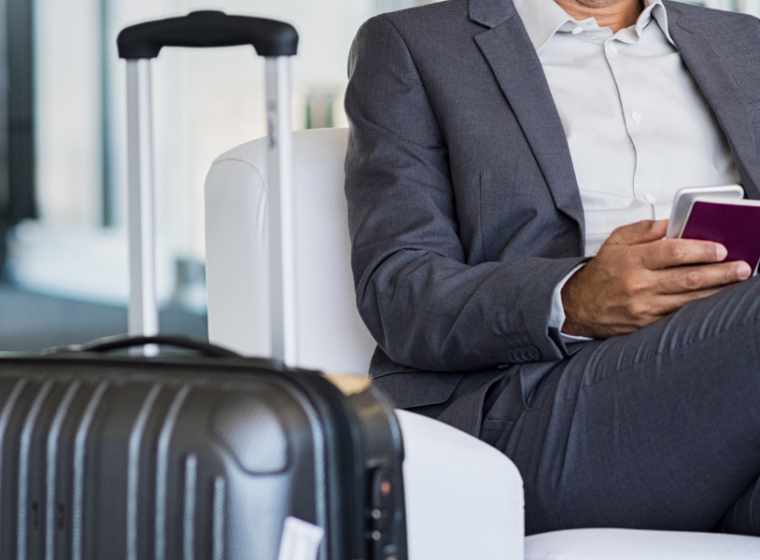Baby boomers represent one of the most distinct and lucrative segments in the hospitality and tourism industry, with unique travel preferences and behaviors that set them apart from other generations. Born between 1946 and 1964, this generation is now entering their peak travel years with more free time, disposable income, and a desire for new experiences.
With most baby boomers well into retirement age, many see travel as a top priority. Statistics show that baby boomer travelers make up nearly a third of all leisure travelers, spending an average of $6,600 on travel each year. That’s 20-50% more in travel spend compared to Gen X or Millennial travelers.
Today’s baby boomer travelers don’t always fit the description of your typical senior citizen, with many elders reshaping what it means to live actively into retirement. So, what are the travel trends that shape the baby boomer generation? Here are some of the most compelling trends that hoteliers and travel industry professionals should know.
1. Preference for All-Inclusive Travel Packages
Baby boomer travelers appreciate the convenience and value of all-inclusive vacation packages, with a majority preferring this option. Accommodating the “comfort-seeking explorers,” these travel packages simplify the planning process and provide a stress-free experience, allowing boomers to focus on enjoying their vacation without worrying about additional costs or logistics.
2. Use of Travel Agents
Despite the rise of online booking platforms, baby boomer travel trends and reports indicate that 58% still use travel agents to book their trips. They value the expertise, personalized service, and convenience that travel agents provide, ensuring that complex travel plans (such as multi-destination international trips or luxury cruises with off-site excursions) are well-organized and tailored to their preferences.
3. Online Booking
While many rely on agents and traditional travel planning resources, this does not mean that baby boomers are resistant to digital travel planning tools. A significant number of baby boomer travelers book their travel arrangements online, utilizing platforms like Booking.com and Expedia which allow them to embrace the convenience and control of managing flights and hotel reservations. This trend highlights their adaptability to digital tools, making it essential for hotels to maintain a strong online presence and user-friendly booking systems.
4. Travel Traditionalists
Unlike millennials, who are more open to technological innovations such as AI-powered robots in hotels, a majority of boomers express reluctance towards such advancements. Studies indicate that 69.6% of those not excited about using robots in hotels are older adults over the age of 45.

5. Hotels Over AirBnBs
Baby boomers demonstrate a strong preference for traditional hotel accommodations over non-traditional options like Airbnb and VRBO, valuing the high-touch, personalized service that hotels provide. While Gen Z and younger travelers are more inclined to choose alternative lodging, boomers appreciate the reliability and amenities of established hotels.
6. Use of Desktops Over Smartphones for Planning
While baby boomers are increasingly tech-savvy, they still prefer using desktops over smartphones for planning and booking their trips. While this behavior shows how older travelers plan, studies show that 92% of boomers use their smartphones when traveling domestically. This highlights reliable WiFi connectivity as a high-demand amenity.
7. Interest in Cultural and Historical Sites
Baby boomers have a strong interest in cultural and historical sites, making these destinations a top priority when planning their trips. They seek to immerse themselves in the local culture, exploring museums, landmarks, and historical tours that offer enriching experiences.
8. Longer Stays
Baby boomers often opt for longer stays at their travel destinations, allowing them to fully immerse themselves in the local culture and environment. According to this report, boomers tend to take vacations that last about 7 days on average. Extended vacations provide a deeper, more relaxed experience, making the most of their time away from home.
9. Road Trips as a Preferred Mode of Travel
Road trips remain a popular choice among baby boomers, offering the freedom to explore at their own pace and discover hidden gems along the way. This mode of travel allows them to enjoy the journey as much as the destination, often leading to spontaneous and memorable experiences.
10. Traveling with Family and Friends
Many baby boomers prioritize spending time with family and friends during their travels. According to McKinsey, their number-one motivation for planning a trip centers on enjoying time with family and friends. In turn, multigenerational trips are common, providing opportunities for bonding and creating lasting memories across different age groups.
11. Increased Travel Spending
A notable 44% of baby boomer travelers plan to increase their vacation spending in the next year. This trend suggests a willingness to invest in high-quality travel experiences, making them a valuable market for premium travel services and luxury accommodations.

Accommodating Baby Boomer Travel Trends
The unique preferences, substantial spending power, and desire for meaningful experiences make boomers a valuable target for hotels and hospitality providers. To effectively harness these boomer travel trends, hoteliers should balance traditional hospitality and personalized service, as boomers value face-to-face interactions and high-touch experiences. This includes offering user-friendly technology and reliable WiFi to enhance their travel experience while maintaining simplicity.
Additionally, developing packages that cater to baby boomers’ travel bucket list aspirations, cultural interests, and multigenerational needs can further attract this audience, emphasizing comfort, class, and amenities while offering flexible booking options and all-inclusive accommodations. By aligning your hotel’s offerings and marketing strategies with these trends, you can position your property as a preferred destination for this influential generation, fostering loyalty and creating memorable experiences that resonate with baby boomers.
For more information about how to support the WiFi connectivity needs of such travelers, get in touch with Blueprint RF, a leading technology partner for hotels and hospitality providers.











